
Ken Livingstone’s comments on Hitler and Zionism created a justified outrage. His comments divorce the realities of Hitler’s antisemtism and Nazi violence. Hitler opposed the creation of a Jewish state in his 1925 autobiography Mein Kampf. Hitler’s antisemitic outlook owes in part to the writings of Henry Ford and The Protocols of the Elders of Zion. His commitment to the conspiracy of a Jewish plot to rule the world prevented him from entertaining the idea of a single Jewish state. This became a meaningful way for the Nazis to dehumanize Jewish communities. Hitler obsession with the racist conspiracy of global Jewish influence germinated in Vienna. This grew in the 1920s when party ideologue Alfred Rosenberg introduced him to The Protocols of the Elders of Zion. The Nazi Party had already published copies of the text in 1919. And by 1939, the party had published at least 23 versions of the text. So Livingstone’s point that Hitler “was supporting Zionism” is wrong. Nor did Israel exist in 1932. The conflation between Zionism, Israel and Hitler only serves to cause deep upset. Livingstone’s comment also divorces the complexities of Jewish thought in this era. Removed from the historical context of growing antisemitic [...]
The post Why Ken Livingstone is wrong about Hitler and Zionism appeared first on Religious Reader.
Continue Reading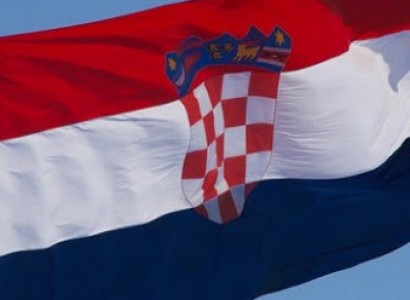
Around 300 of Croatia’s Jewish population held a vigil outside the country’s most notorious concentration camp in protest at the government’s alleged failure to challenge rising neo-Nazi sentiment in the country. Part of this failure concerns the downplaying of the crimes of Croatia’s pro-Nazi regime. The ultra-nationalist and antisemitic Ustaša regime took power on August 10, 1941, after Axis forces had invaded Yugoslavia on April 6, 1941. Concentration camps were built nationwide to ‘purge’ Croatian society of ‘foreign elements’. This extended to Jews, Serbs, Roma and non-Catholic minorities. Ustaša fascists exterminated over 500,000 Serbs. They forced 250,000 into exile and made 250,000 more Serbs convert to Catholicism under pain of death, according to Yad Vashem. The fascist regime murdered 75 per cent of Croatia’s pre-war Jewish population of 40,000. Jews in Croatia now make up 1 per cent of the general population. Between 15,000 and 20,000 Roma were also murdered by the Ustaša regime, as were between 5,000 and 12,000 ethnic Croats and Muslims. Croatia’s largest concentration camp was the Jasenovac complex, a string of five camps along the Sava River, east of Zagreb. Close to 100,000 people were murdered in this camp between 1941 and 1945. Prisoners at the [...]
The post Croatian Jews boycott official Holocaust memorial over rising neo-Nazism appeared first on Religious Reader.
Continue Reading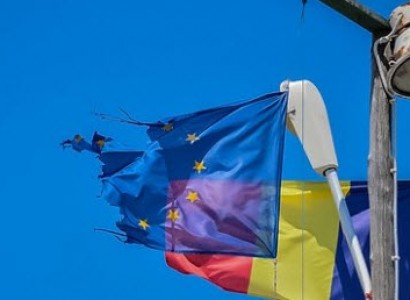
A mayoral candidate in the upcoming Bucharest election had denied Romania’s complicity in the Holocaust in a 1994 news article. Marian Munteanu now of the National Liberal Party (PNL), had founded the ultra-Christian and nationalist Movement for Romania (Mişcarea pentru România) in 1991. The accusations surfaced in their newspaper ‘Mişcarea’ in June 1994. The party foleded in 1996 as Munteanu pursued other interests. He denied that Romania had experienced an anti-Jewish Holocaust and the 400,000 deaths were no more than a ‘deeply flawed assessment’. Much of Romania’s Holocaust denial concerns the actions of Nazi collaborator General Ion Antonescu. His antisemitism is, however, without question. In a 1941 session of the Council of Ministers he said: “I give the mob complete license to massacre [the Jews]. I will withdraw to my fortress, and after the slaughter, I will restore order.” Antonescu ordered pogroms and the closure of all ‘Jewish communist cafes’. The repressive regime had proved one of Hitler’s most consistent allies during the Second World War. General Antonescu had met with Hitler in 1943 to reassure him of Romania’s unconditional support. Romania and other Axis allies were part of the invasion of the Soviet Union in 1941. Odessa, a city [...]
The post Bucharest mayoral candidate outed as Holocaust denier appeared first on Religious Reader.
Continue Reading
Pope Francis will visit the Auschwitz-Birkenau concentration camp in July, as part of World Youth Day. This trip coincides with his five day trip to Poland, arriving on July 27 and departing July 31. Pope John Paul II, himself Polish, became the first pope to visit the camp. Benedict XVI visited in 2006. The US Holocaust Museum estimates that the SS had murdered at least 960,000 of the 1.1m Jews deported to the camp. Of the 23,000 Romani, the Nazis murdered 21,000. Other victims included 15,000 Poles, 15,000 Soviet prisoners of war. And 10-15,000 members of other nationalities perished (including Czechs, Yugoslavs, Germans, Austrians and French). On June 7, 1979, Pope John II made a five-hour visit to the camp. He prayed before a stone crucifix in memory of the Catholic priest Maksymilian Kolbe, prisoner number 16670, who the SS murdered in 1941. Kolbe volunteered to die, so Franciszek Gajowniczek, a father of five might live. Gajowniczek, the Polish army sargeant had been chosen to die in an Auschwitz dungeon called the “hunger bunker,” after a prisoner had escaped. Kolbe pleaded, ‘I want to take the place of this man. He has a wife and a family. I have no one. [...]
The post Pope Francis to visit Auschwitz death camp in July appeared first on Religious Reader.
Continue Reading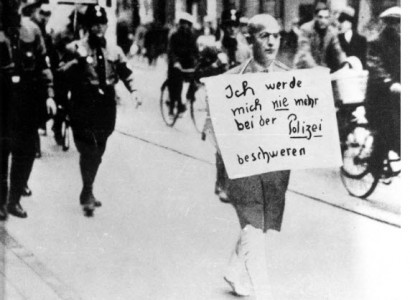
The year is 1933 and Hitler’s rise to power is imminent. Days earlier and the Nazis had exploited the burning of the Reichstag, home of the German parliament, for votes. Armed security forces patrolled public buildings. On the streets, Sturmabteilung (SA) ‘brown shirts’ had their violence legitimised by decree. Political violence and intimidation, however, did not grant Hitler his parliamentary majority. The March 5 elections gave the Nazi Party 43.9 per cent of the vote and 288 parliament seats out 647. On March 10, 1933, Dr Michael Siegel visited a Munich police station on behalf a client. Dr Siegel was one of roughly 4,000 Jewish lawyers in Germany. They held senior positions in the court system, bar association and justice ministry. In 1933, racist laws pushed saw many lose their jobs. The indignity of this discrimination was was compounded by further arrests and violence. Dr Siegel had entered a Munich police station on behalf of Max Uhlfelder, the Jewish owner of a large city-centre store. Nazi Party members had taken positions of office in Munich a day earlier. Heinrich Himmler, the SS commander, now commanded the Police Authority. The Swastika flew atop public buildings. Nazi paramilitaries had smashed Mr Uhlhelder’s [...]
The post Dr Michael Siegel: the Jewish lawyer who survived Nazi violence and humiliation on March 10, 1933 appeared first on Religious Reader.
Continue Reading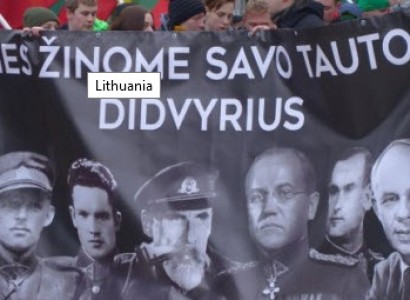
Nationalists marched in Kaunas, a city east of Lithuania’s capitol of Vilnius, to celebrate alleged Nazi collaborators. Members of defendinghistory.com – a website dedicated to exposing extremism in Lithuania monitored the 16 February march. The Union of Nationalist Youth of Lithuania organised the march to fall on the anniversary of Lithuania’s declaration of independence in 1918. Under the banner “We Know Our Nation’s Heroes”were pictures of Adolfas Ramanauskas-Vanagas, Jonas Noreika, Povilas Plechavičius, Kazys Škirpa, Antanas Baltūsis-Žvejas, and Juozas Ambrazevičius-Brazaitis. Individuals accused of direct complicity in the Holocaust or fighting alongside Nazi forces. The Soviet Union invaded Lithuania in 1940. And within two months had annexed the country. A year later and Lithuania had absorbed Jewish refugees fleeing Nazi tyranny in Poland. This swelled Lithuania’s Jewish population to 250,000 (10 per cent of the population). Juozas Ambrazevičius-Brazaitis formed a provisional government after Nazi Germany had expelled the Soviets. Nazi Germany had banned the preferred choice of Kazys Skirpa from returning to Lithuania. It lasted for six weeks. Some accuse it of it complicity with the invading Nazi forces. Others would argue that it attempted in vein to restore statehood. The provisional government had welcomed the Nazi vision for a ‘new Europe’. [...]
The post Lithuanian neo-Nazi march celebrates Nazi collaborators appeared first on Religious Reader.
Continue Reading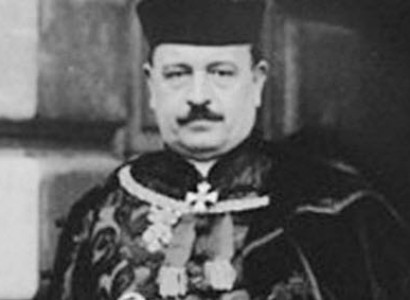
Hundreds of Hungarians held a candle-lit vigil against a planned statue honouring a pro-Nazi minister. The protest in the city of Székesfehérvár this past Sunday included diplomats from the United States, Israel, Canada, and Washington’s special envoy on anti-Semitism Ira Forman. Bálint Hóman remains of Hungary’s most toxic reminders of its complicity in the Holocaust. He supported discriminatory policies that disposed Jews of land and denied them university jobs in the 1930s. He advocated a close alliance with Nazi Germany. And supported policies that resulted in the deportation and murder of more than 500,000 Jews. Székesfehérvár’s mayor, András Cser-Palkovic, a member of the ruling Fidesz party, will ask the Hóman Foundation to reconsider its planned installation. Fidesz has already donated Ft15m ($52,000) to the project. The Hóman Foundation hope to unveil the statue on December 29 – the 130th anniversary of Hóman’s birth. Hungary’s close ties to Nazi Germany began before the onset of war. In 1938, the Nazis annexed Sudeten region of the now Czech Republic. Hungary gained territory from this action. That same year, Hungary passed laws that cut Jewish employment by 80 per cent. A year later, and Hungarian laws racialised Jews. Against this backdrop, the Nazis [...]
The post Statue honouring pro-Nazi politician Bálint Hóman causes outrage in Hungary appeared first on Religious Reader.
Continue ReadingThe story of Jan Karski’s bravery in the Second World War came to life in a recent documentary in his native Poland. Sławomir Grünberg’s ‘Karski and the Lords of Humanity‘ (Karski i władcy ludzkości), blends archival footage, animation, and interviews to retell a story of wartime heroism. Born in the Polish city of Łódź in 1914, the youngest of eight Catholic children, Jan Romuald Kozielewski later adopted the nom de guerre of Karski. The city exposed a young Karski to multiculturalism. He found himself living alongside Germans, Jews, Russians and Poles. That exposure to Jewish life created an affinity within Karski. Academic pursuits helped him join Poland’s diplomatic service. When interning for the foreign minister, he found himself in Nuremberg, Germany. Karski saw the Nazi propaganda rallies in 1933 and the toxicity of Nazi antisemitism. It created a deeper sympathy for their plight and a sense of foreboding. Other diplomatic assignments brought him to London and Paris. But the outbreak of war brought a career change as he enlisted in the army in 1939. In a few short weeks, invasions from German then Soviet troops divided Poland. The Soviets arrested Karski and placed him in a detention camp; but a [...]
The post Jan Karski: the Catholic spy who warned about the Holocaust in 1942 appeared first on Religious Reader.
Continue Reading